Indigenous Governance Database
educating non-Indians
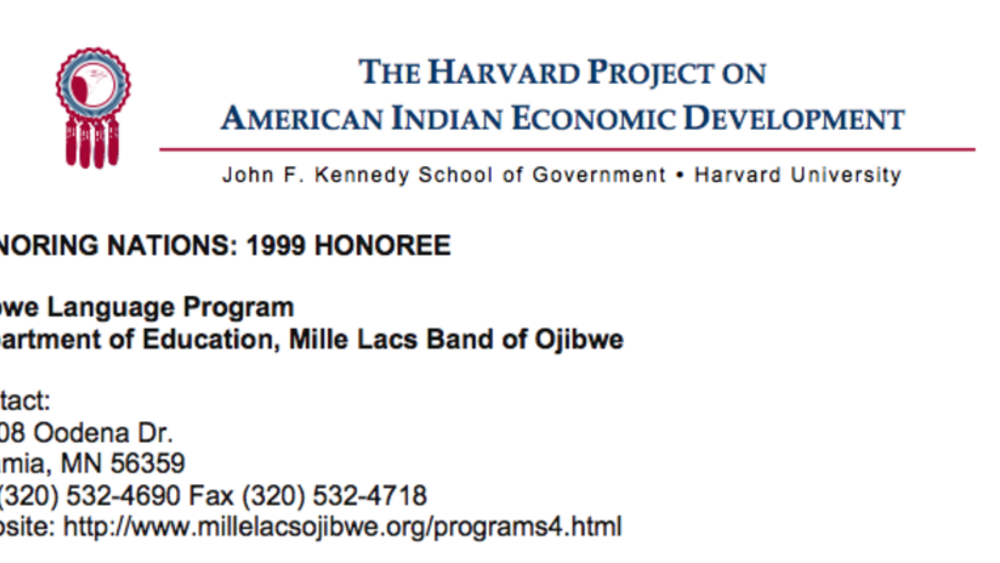
Mille Lacs Ojibwe Language Program
Created in 1995, this tribally funded program serves 350 students (from toddlers to teenagers) and uses elder-youth interaction, song books, and comic books to teach the Ojibwe language. In addition, the Program broadcasts language classes to local public schools in an effort to teach the Ojibwe…
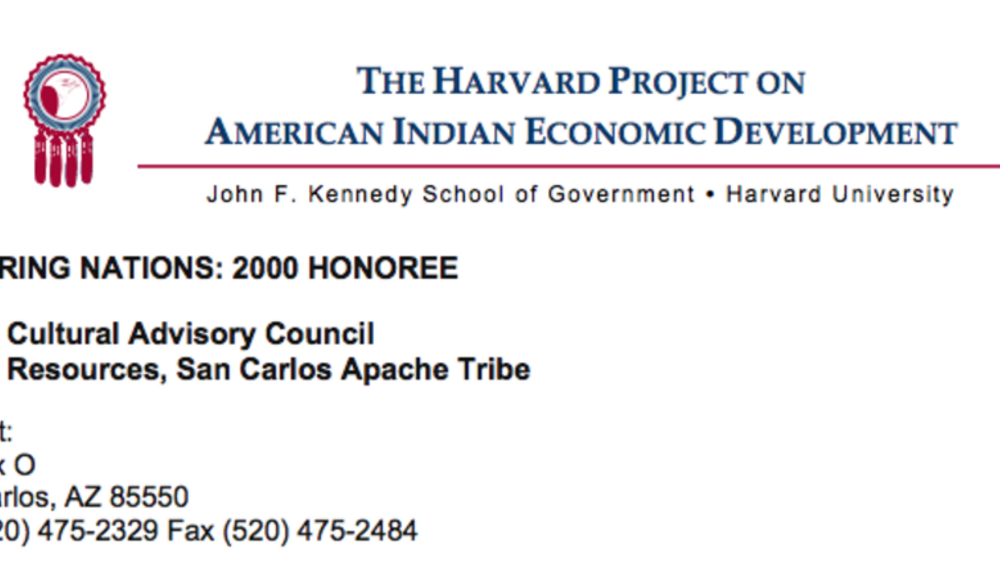
San Carlos Apache Elders Cultural Advisory Council
The Elders Cultural Advisory Council was formed by a resolution of the San Carlos Tribal Council in 1993 to advise on culturally related matters, to consult with off-reservation entities, and to administer and oversee cultural preservation activities. As a source of traditional wisdom, the Elders…
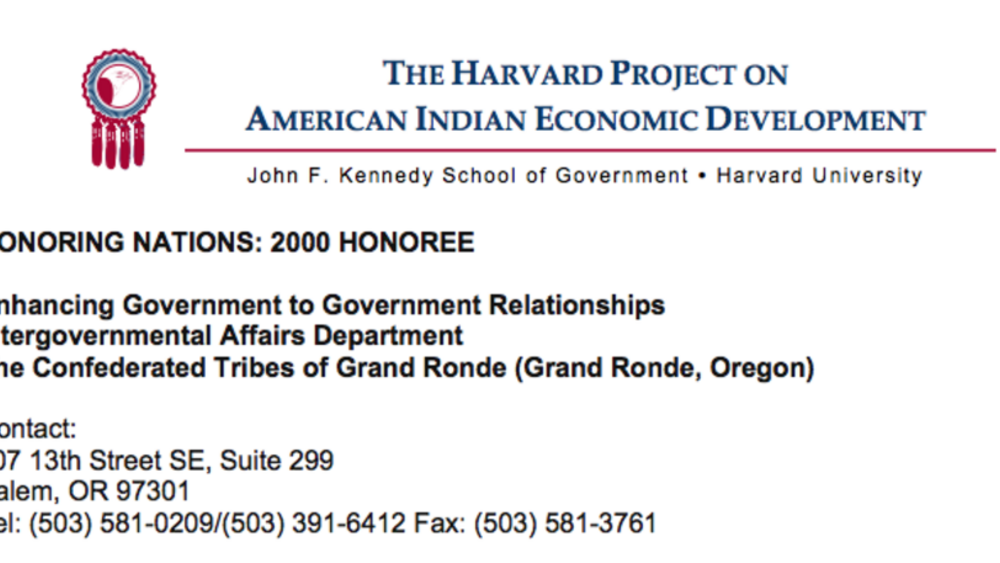
Enhancing Government-to-Government Relationships (Grand Ronde)
The Intergovernmental Affairs Department has achieved positive intergovernmental relationships with federal, state, and local governments by pursuing a five-pronged strategy of communication, education, cooperation, contributions, and presence. Since the Department’s creation, the Tribe has raised…
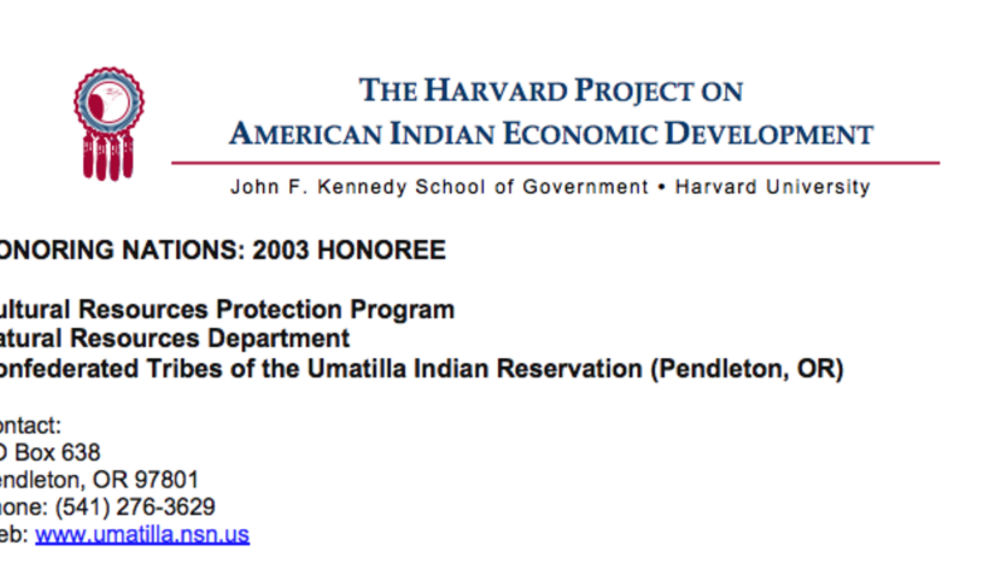
Umatilla Cultural Resources Protection Program
Frustrated by how tribal cultural resources were managed on tribal, federal, state, and private lands, the Tribes developed their own cultural resources protection program. The 15-year-old program is a leader in educating non-Indian agencies about pertinent laws and treaties, strengthening cultural…
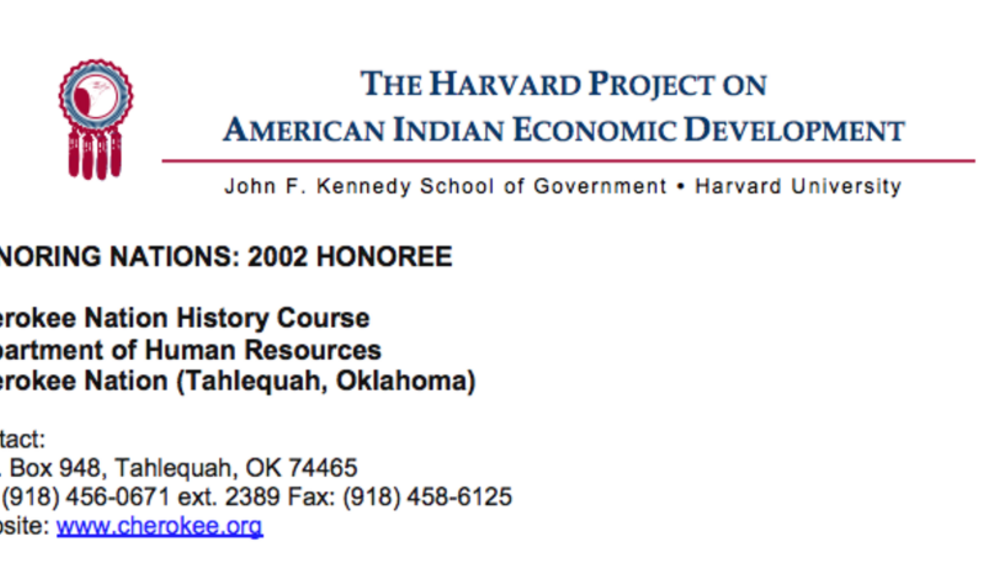
Cherokee Nation History Course
Launched in 2000, the Cherokee Nation History Course is a free, 40-hour, college-level study offered to 1,800 tribal employees and members of Cherokee communities. Through lectures, discussions, case exercises, and role-playing, the course teaches Cherokee history, culture, and government to both…
Honoring Nations: Joseph Singer: Sovereignty Today
Harvard Professor Joseph Singer makes a compelling case that Native nations' best defense of sovereignty is their effective exercise of it, and stresses the importance of educating the general public -- particularly young people -- about what tribal sovereignty is and means.
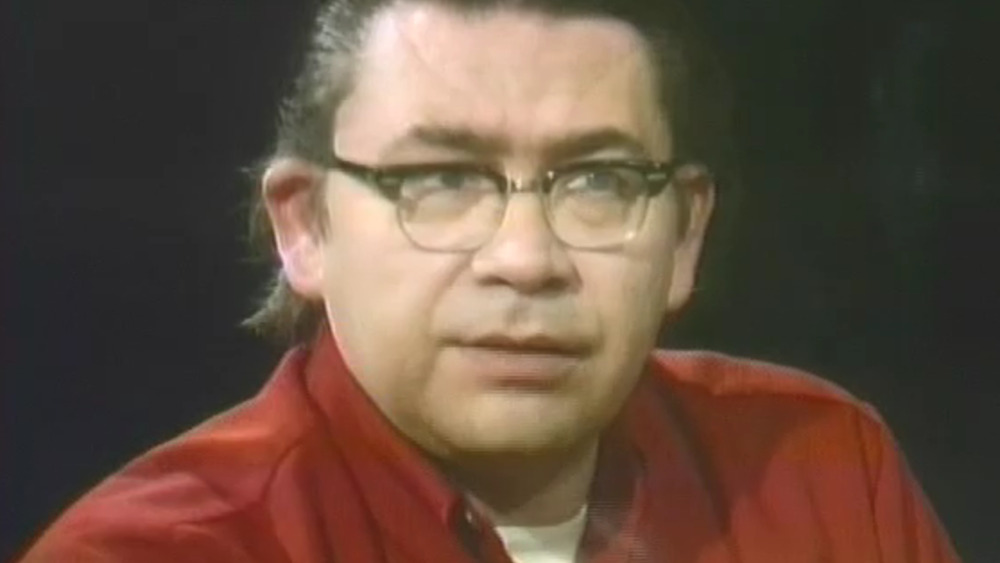
A conversation with Vine Deloria, Jr.
Indian writer Vine Deloria responds to questions from three interviewers, discussing the status quo of American writing about Indians. Deloria offers educational recommendations for Native Americans to counteract the predominance of Anglo viewpoints in the current literature.
